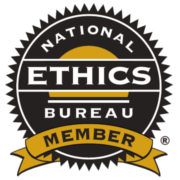Retirement Advice for Those Nowhere Near Retirement
It’s valuable to share insights and information with everyone who is on their journey to retirement — but it can be easy to focus more on those who are closer to retirement instead of earlier in their careers.
So, here’s a look at some financial advice for younger workers. It’s especially valuable to help younger people avoid some of the financial mistakes that some of their elders made on their own financial journeys.
For many people, thinking back to their younger years and the financial decisions they made then is about enough to make them try to invent a time machine. Until time travel comes around, good old-fashioned education is the next best thing. A recent article1 does a great job of providing some of those tips.
The first piece of advice is to learn self-control. When we’re kids, most of us learn self-control in terms of when we talk in class, how many cookies we can eat when they first come out of the oven, and when we go to bed. But it’s just as important to learn financial self-control.
Self-control is even more important when we start to work full-time and make more money than we ever had previously. When we get older and are making a regular salary, we have to learn instant gratification can get us in trouble if we start buying whatever we want with credit cards.
Saving up for the latest PlayStation, rather than putting it on plastic, is going to be so helpful in the long run. Remember, if putting gadgets, jeans, and sushi on credit cards becomes a habit, you could end up paying for those things for many years into the future.
The article does note, of course, that credit cards are a financial tool most people have to use, at least from time to time.1 And you can also be strategic about how you use them. For example, select a card that has good and achievable rewards, perhaps frequent flyer miles or cash back.
Then, always pay your balance in full when the bill hits in your inbox. Also, don’t carry more cards than you can keep track of or pay off each month.
Not relying too heavily on credit cards is such a valuable financial life lesson. Credit cards are valuable tools for emergency situations and can also help you build credit, but it’s so crucial to not to abuse them.
The next thing that benefits young people on their journey to retirement is to know where their money is going. It sounds like a simple thing, but it’s essential. If you stop every morning on the way to work for a bagel or coffee you might not really notice the daily expense. In a way, your mind can play tricks on you. Every morning when you’re in line for your coffee and bagel, you tell yourself, “Hey, it’s only $6.” But your mind isn’t factoring yesterday’s $6 and tomorrow’s $6.
Finally, no matter where you are in life or on your journey to retirement, it’s important to have an emergency fund.1 With factors including credit card debt, student loan debt, an entry-level salary, it can be difficult to build an emergency fund. But it’s still important to save money, even if it’s only a few bucks.
The decisions you make when you’re young can have a lasting impact on your retirement strategy. By starting to make good decisions early on, you’ll position yourself well for everything that’s yet to come on your journey.
1 https://www.investopedia.com/articles/younginvestors/08/eight-tips.asp

